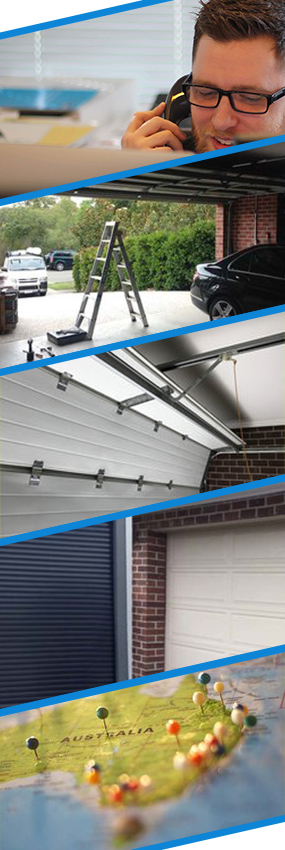A noisy garage door can be a nuisance, disrupting the peace and quiet of your home. If you’re wondering why your garage door is making noise and how to solve the issue, here are some possible reasons and solutions.
Lack of Lubrication: One common cause of a noisy garage door is a lack of lubrication. Over time, the moving parts of the door, such as the hinges, rollers, and springs, can become dry and start to squeak or grind. To solve this issue, apply a lubricant specifically designed for garage doors to these parts. This will help reduce friction and noise.
Loose Hardware: Another reason for a noisy garage door is loose hardware. As the door operates, vibrations can cause nuts, bolts, and screws to loosen. Inspect the hardware and tighten any loose components using a wrench or screwdriver. This simple step can significantly reduce noise.
Worn Rollers: If your garage door is making a popping or grinding noise, worn rollers could be the culprit. Rollers can wear out over time, causing them to become noisy and less efficient. Replace worn rollers with new ones made of nylon or steel. These materials are durable and provide smoother operation, resulting in a quieter door.
Damaged or Worn Springs: Garage door springs play a crucial role in the door’s operation. If they are damaged or worn, they can produce loud noises when the door opens or closes. It is important to address spring issues promptly, as they can be dangerous to handle. Contact a professional garage door technician to inspect and replace the springs if necessary.
Misaligned Tracks: Misaligned tracks can cause the garage door to make scraping or rubbing noises. Inspect the tracks for any gaps or misalignment. Use a rubber mallet to gently tap the tracks back into place. If the tracks are severely damaged or bent, it may be necessary to call a professional to repair or replace them.
Insufficient Door Balance: An imbalanced garage door can create excessive noise during operation. To check the balance of your door, disconnect the opener and manually lift the door halfway. If it doesn’t stay in place, it may be unbalanced. Adjust the tension on the springs or call a professional to properly balance the door.
Worn-Out Opener: If your garage door opener is old or worn out, it can contribute to the noise. Consider upgrading to a newer model with a quieter operation. Belt-driven or screw-driven openers are generally quieter than chain-driven ones.
Regular maintenance and inspections are key to preventing and addressing noisy garage doors. Keep the moving parts lubricated, tighten loose hardware, and address any issues promptly. If you’re unsure about how to solve the problem or if the noise persists, it is best to consult a professional garage door technician. They have the expertise to diagnose and fix the issue, ensuring a quieter and smoother-operating garage door.
We provide expert service, advice and maintenance for your garage doors. We also offer a wide variety of products and services.

